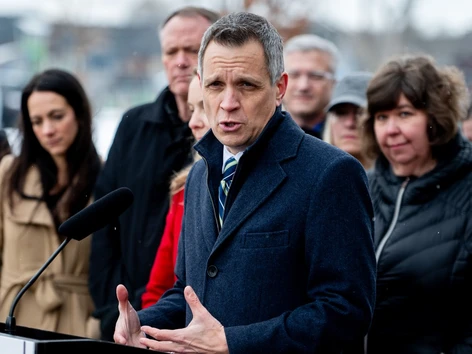Whitzman and Dreessen: Why does Ottawa lag behind on housing solutions?

Last month, the federal government formally announced a commitment of $176.3 million to the City of Ottawa through its Housing Accelerator Fund (HAF). The funding will go to building 4,500 more affordable homes over the next three years.
This makes Ottawa one of nearly 20 Ontario cities to qualify for funding. Like other municipalities, the money is contingent on introducing a number of initiatives to make housing possible, including reforming municipal zoning to allow up to four homes on every residential lot by June, with enactment in 2025.
This agreement appears to be a step down from Ottawa’s 2022 Official Plan, which spoke of four-storey “low rise” zoning as a baseline minimum, with no limit on the number of units. More importantly, it falls well short of what is necessary to enable 151,000 more homes near transit and services by 2031, as the City of Ottawa pledged to the Ontario government, let alone enough to power the transition to energy-efficient, affordable and accessible communities that every recent Canadian report says is needed.
Federal Housing Minister Sean Fraser wasn’t at the Ottawa event. Instead, he was announcing a bold plan for non-market and affordable housing on government land. Fraser, with Prime Minister Justin Trudeau and Finance Minister Chrysta Freeland, was in Toronto in December 2023 when HAF pledged $471 million for a broad range of strategies, including acquiring rental buildings at risk of becoming unaffordable and building housing near rapid transit.
A month earlier, the City of Calgary received $228 million from HAF after it adopted a plan to build 3,000 affordable non-market homes a year. In May 2023, before HAF bids were open, the City of Ottawa received a report called Our City Starts with Home from the Alliance to End Homelessness Ottawa, endorsed by organizations ranging from supportive housing providers to the Board of Trade. The report recommended starting to build non-market housing on 18 mostly city-owned sites close to LRT. At the same time, a local housing advocacy group called Make Housing Affordable Ottawa released an action plan with very similar proposals.
If the City of Ottawa had built on those proposals as part of its HAF bid, it could have been in front of the pack instead of trailing behind.
Other Canadian cities are creating innovative approaches to housing. The City of Edmonton is forging ahead with a new zoning bylaw, adopted in October 2023, that includes zoning permitting the size, density and scale of development that our cities need (“as of right” zoning) with no parking minimums. The British Columbia government is scaling up affordable non-market and Indigenous housing on government land and reforming the building code to improve accessibility.
Meanwhile, Ottawa’s panicked approach to homelessness reveals a lack of forward thinking. Rather than temporary solutions, long-lasting action that comes from addressing root causes remains elusive. At a Jan. 16 Ottawa event attended by Minister Fraser, visitors from Finland discussed the virtual elimination of homelessness in their country. Numerous city councillors attended; the mayor and majority of councillors, including those representing rural and suburban wards, were nowhere to be seen.
Innovative, creative solutions were largely absent from the HAF submission. There was no consideration of support for sustainable buildings; nothing to address vast tracks of publicly owned land near transit that could have housing built on it today. Bureaucratic barriers for office-to-residential conversions should never have existed; A decade ago, a report was tabled to streamline planning; electronic permit applications have been in place in some cities for 10 years or more.
Why does it take HAF funding to make these changes today when the city could have done this at any time?
It has been 18 months since the last municipal election but we see no big ideas. Compare Ottawa to the creative and innovative changes being made within four months of Olivia Chow being elected as mayor of Toronto.
Ottawa has the talent for solutions but they never make it to the table (sometimes because of procurement rules) or get voted down by a fractured city council interested in low taxes and little else. There is a groundswell of interest in making a better Ottawa. A thriving urbanist book club, numerous formal and informal walking tours and grassroots advocacy organizations. Local residents meet, write and petition for change in everything from housing policy to environmental stewardship. Clearly, there is a desire for positive change. The time is now.
Cowritten by Toon Dreessen and Carolyn Whitzman.
Originally published in The Ottawa Citizen